Introduction: Unraveling the Tongue’s Mysteries
The human tongue, often taken for granted, is a remarkable organ. Its dexterity allows us to speak, taste, and digest our food. But like any other body part, it’s susceptible to certain conditions. Among these is the intriguing and somewhat perplexing fissured tongue. Ever gazed into the mirror and noticed grooves, cracks, or fissures on your tongue’s surface? You’re not alone.
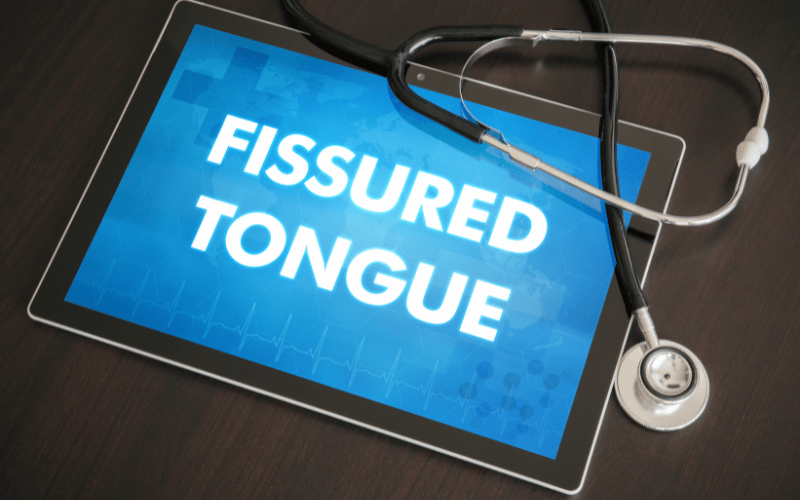
Fissured tongue, medically termed as “lingua plicata,” is a benign condition where cracks or grooves appear on the tongue’s surface. These fissures can vary in depth and width, from mere surface cracks to deeper grooves. They might occur in isolation or might be accompanied by other symptoms or conditions.
For many, the appearance of fissures raises several questions. Why did they appear? Are they a sign of an underlying health issue? Or perhaps, a result of lifestyle habits or age? While the appearance might be alarming, it’s crucial to note that in most cases, a fissured tongue is harmless. However, understanding its causes can provide peace of mind and guide preventive measures.
The aim of this article is to shed light on the top 10 causes of fissured tongue. From genetics to dietary factors, and from medical conditions to oral habits, we will dive deep into the world of these intriguing fissures, offering a thorough understanding for the curious reader. Whether you’re someone who has noticed these fissures on your tongue or simply someone passionate about oral health, this article promises a wealth of information. Let’s embark on this enlightening journey together.
1. Genetics: The Underlying Blueprint of Fissured Tongue

It’s fascinating how our DNA dictates so much about us – from our eye color to our predisposition to certain health conditions. Similarly, the makeup of our tongue’s appearance has its roots in genetics. Some individuals inherit the trait for fissured tongue, making it a family affair passed down through generations.
Studies focusing on families and identical twins have shown a pattern, indicating a hereditary component to the condition. While not everyone with a family history will develop fissures, their chances are significantly higher than someone without such a lineage. Delving into the genetic codes, researchers have isolated certain markers that might be responsible for this trait.
Genetic factors don’t function in isolation. They often intertwine with environmental factors, creating a unique blend of causes. For instance, while genetics can predispose an individual to fissured tongue, factors like nutrition and oral habits can play a role in exacerbating or reducing its appearance. (1)
2. Age: The Ticking Clock’s Influence on Tongue Terrain

There’s no escaping the march of time. As years roll by, our bodies undergo numerous changes, and the tongue isn’t exempt from this. The aging process can often lead to the appearance or deepening of fissures on the tongue’s surface.
With age, the tongue’s papillae – tiny, finger-like projections – can wear down. This wear and tear can sometimes manifest as grooves or fissures, becoming more pronounced as one gets older. The cellular turnover of the tongue, like the rest of the body, can reduce over time, leading to these visible changes.
Beyond the cellular level, the overall decrease in muscle tone and tissue elasticity associated with aging plays a role too. This can cause the tongue’s surface to look more wrinkled or fissured. It’s a natural part of the aging process, akin to wrinkles on our skin or gray hair. (2)
3. Nutritional Deficiencies: When The Body Sounds The Alarm

The food we consume goes beyond merely satisfying our hunger. It plays a pivotal role in maintaining our overall health, and any deficiencies can manifest in unexpected ways. For the tongue, lacking specific vitamins and minerals can be a direct ticket to fissures.
For instance, a deficiency in Vitamin B complex, particularly B2 (riboflavin), B3 (niacin), and B12, can lead to various tongue issues, including fissures. These vitamins are crucial for maintaining skin and mucosal health, and their lack can make the tongue more susceptible to cracks.
Similarly, iron plays a pivotal role in maintaining healthy tissues, including those in our mouth. An iron-deficient body might showcase a pale tongue that’s more prone to fissures. Zinc, another crucial mineral, aids in cell growth and repair. A lack of it can impede the tongue’s natural healing processes, leading to persistent fissures.
The key takeaway here is the importance of a balanced diet. While supplements can help bridge the gap, a diverse diet rich in essential vitamins and minerals is the first line of defense against these oral manifestations. (3)
4. Dry Mouth (Xerostomia): The Desert Within
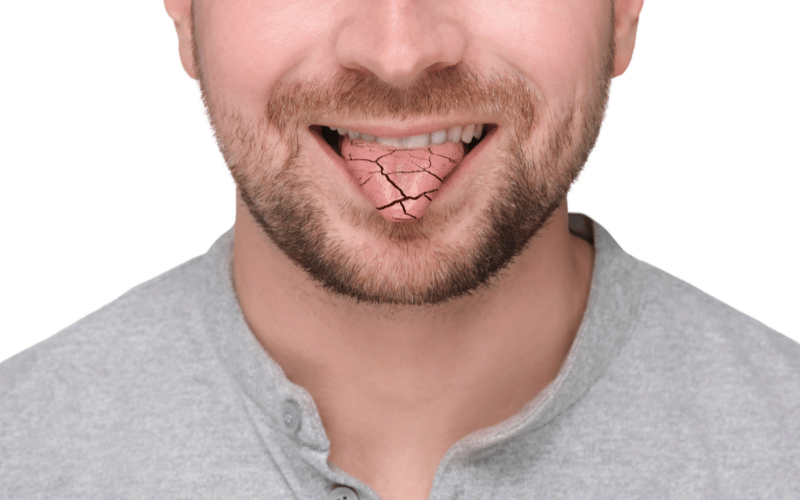
Our mouths are bustling ecosystems, reliant on a careful balance of moisture. Saliva, often underrated, plays an essential role in oral health. But what happens when there’s a drought in this ecosystem? The condition, known as Xerostomia or dry mouth, can lead directly to a fissured tongue.
Saliva serves multiple purposes. It aids in digestion, cleanses the mouth, and maintains a balanced pH, protecting against microbial overgrowth. With a reduced saliva flow, the tongue becomes more susceptible to external irritants and can develop fissures as a defense mechanism.
The reasons for dry mouth are manifold. Factors like dehydration, certain medications, or even excessive mouth breathing can reduce saliva production. Lifestyle habits, such as tobacco use or excessive caffeine consumption, can also contribute to this parched condition.
For those experiencing persistent dry mouth, it’s essential to identify and address the root causes. Simple changes like staying hydrated, chewing sugar-free gum, or using a humidifier can help alleviate the symptoms and, by extension, prevent the onset of fissured tongue. (4)
5. Oral Habits: Small Actions, Significant Consequences
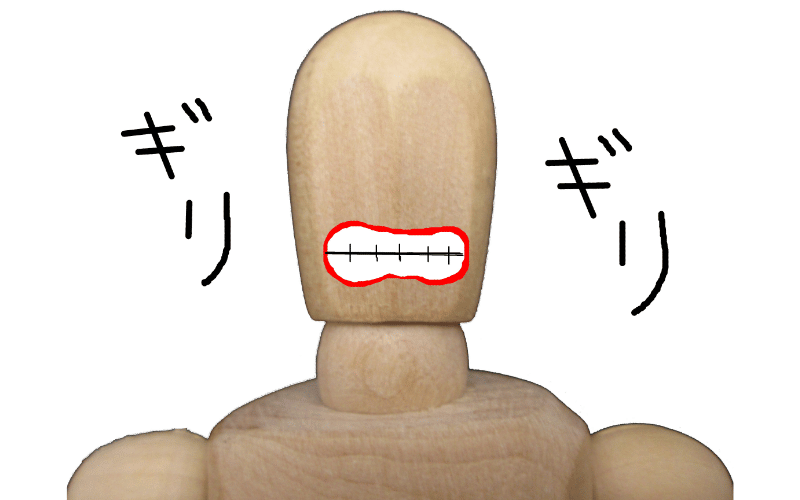
Habits – they’re a part of our daily lives, often so ingrained that we don’t notice them. But when it comes to our oral health, certain habits can be the silent architects of a fissured tongue. And it’s not just about brushing or flossing.
Grinding or clenching the teeth, a condition known as bruxism, can impact the tongue. The repeated pressure and friction can lead to changes in the tongue’s surface over time, potentially causing or exacerbating fissures. Interestingly, many people aren’t aware they grind their teeth, especially if it occurs during sleep.
Similarly, habitual tongue thrusting – where the tongue is pushed against the teeth frequently – can alter its texture. This habit, more common in children, can persist into adulthood and be a potential cause of fissures.
Then there’s the act of constantly poking or prodding the tongue against misaligned or sharp teeth. Over time, this can lead to grooves or cracks on the tongue, especially if done with considerable force or frequency.
The fascinating thing about habits is their stealth. Often, we’re unaware of these actions until they manifest as health issues. It underscores the need for self-awareness and periodic dental check-ups to spot and rectify any detrimental oral habits early on. (5)
6. Hormonal Fluctuations: The Body’s Tidal Waves
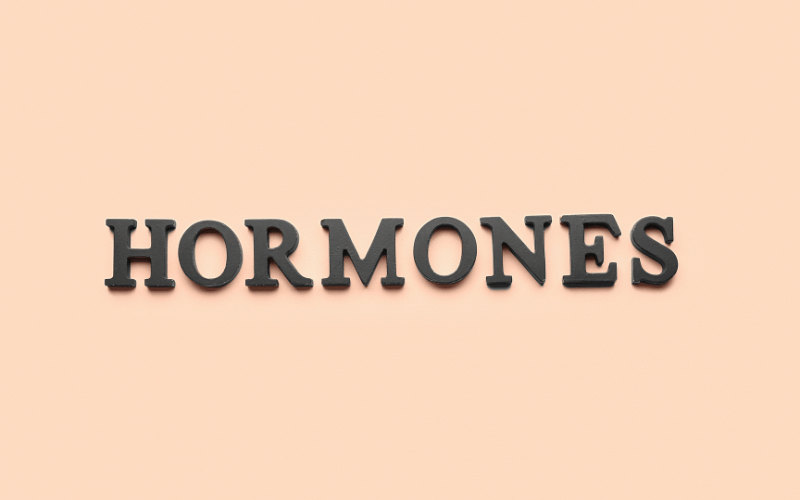
Hormones, the body’s chemical messengers, influence nearly every physiological process. From mood to metabolism, their ebbs and flows can have far-reaching effects. One such manifestation is the condition of the tongue, where imbalances can sometimes lead to fissures.
During significant life events, such as puberty, pregnancy, or menopause, the body undergoes dramatic hormonal shifts. These changes can influence the skin’s elasticity and moisture levels, including the mucous membranes of the mouth. As these membranes dry or become less elastic, fissures can form on the tongue’s surface.
The fascinating interplay between hormones and the tongue becomes evident when studying birth control pills. Some users of hormonal contraceptives have reported oral symptoms, including fissured tongue, as side effects.
This intricate dance of hormones showcases the tongue’s sensitivity as a reflection of internal changes. It’s a living, responsive organ, reacting to the body’s symphony of chemical signals in subtle yet telling ways. (6)
7. Allergies: The Body’s Overreaction and the Tongue’s Tale
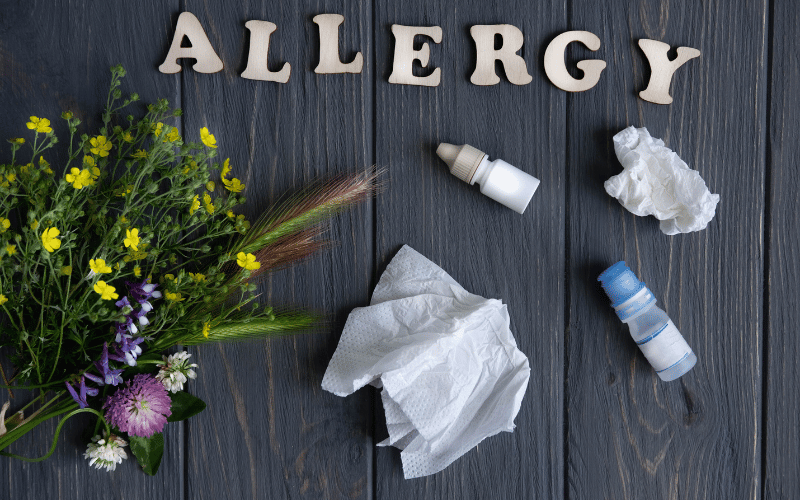
Allergies, our body’s heightened response to substances, often show their effects in various ways, one of which can be a fissured tongue. The tongue, sensitive and responsive, can react to an allergen either consumed or encountered.
When people think of allergies, they often picture sneezing, itching, or hives. However, in some cases, allergic reactions can involve the mouth, leading to inflammation, swelling, and occasionally, fissures. Such reactions can be seen when someone consumes foods they’re allergic to, like strawberries or certain seafood.
Additionally, oral allergy syndrome, a condition where one reacts to certain foods due to pollen allergies, can lead to tongue changes. For instance, a birch pollen allergy might cause reactions to apples, leading to an itchy mouth and possible fissures.
The world of allergies is vast and intriguing. Did you know that some individuals can develop fissures after kissing someone who has consumed an allergen? Such is the sensitivity of our tongues!
A lesson we can draw from this is the importance of knowing one’s allergies. It’s not just about avoiding sniffles or rashes; it’s also about preserving the integrity of our tongues and understanding the myriad ways allergies can manifest. (7)
8. Systemic Diseases: When the Tongue Speaks Volumes

Though often overlooked, the tongue can act as a window into our broader health, hinting at systemic diseases. Conditions such as diabetes, Sjögren’s syndrome, or even Down syndrome can manifest orally and lead to a fissured appearance of the tongue.
Diabetes, known to affect multiple organs and tissues, can also impact the oral cavity. High blood sugar levels can lead to reduced saliva production and consequent dry mouth, indirectly contributing to fissures.
Sjögren’s syndrome, an autoimmune condition, primarily affects the moisture-producing glands, leading to dry eyes and mouth. This lack of moisture can contribute to a fissured tongue.
The tongue’s role as an indicator of systemic health cannot be understated. It serves as a reminder that oral health and overall health are intricately linked, with one often reflecting the state of the other. (8)
9. Medications: Unintended Oral Side Effects

Medications, while crucial for treating various ailments, can sometimes come with unintended side effects. The mouth, being a sensitive area, often bears the brunt of these side effects. Certain medications can lead to changes in the tongue’s appearance, including the formation of fissures.
Medications that cause dry mouth, such as antihistamines, diuretics, or those used for high blood pressure, can indirectly contribute to fissures. The dry environment makes the tongue more susceptible to cracking or fissuring.
Chemotherapy drugs, known for their profound side effects, can lead to oral mucositis. This condition involves the inflammation and ulceration of the mucous membranes, including the tongue. As the tissues heal, fissures can form.
The intricate relationship between medications and oral health highlights the need for comprehensive care, where both the benefits and potential side effects of drugs are considered and addressed. (9)
10. Environmental Factors: External Forces at Play

Our surroundings, often underestimated, can wield significant influence over our health. Environmental factors, be it the air we breathe, the food we consume, or the pollutants we’re exposed to, can impact the tongue’s health.
Living in polluted areas, where the air is laden with particulate matter, can irritate the oral mucosa. Over time, this constant exposure can lead to changes in the tongue’s texture, including fissures. The tiny particles can settle and affect the tongue’s surface, leading to irritations that may manifest as fissures.
Excessive exposure to strong chemicals, such as those in certain mouthwashes or toothpastes, can also irritate the tongue. Those working in environments with frequent chemical exposure, like laboratories or factories, might notice oral changes over time.
Even our dietary choices, beyond nutritional content, play a role. Consuming very hot or spicy foods regularly can lead to minor burns or irritations on the tongue, which can subsequently fissure as they heal.(10)
FAQ: Frequently Asked Questions About Fissured Tongue

1: Can fissured tongue affect my sense of taste?
Interestingly, while fissured tongue primarily changes the tongue’s appearance, it doesn’t necessarily influence the taste buds directly. However, accumulated debris in the grooves might cause a slightly altered taste sensation. Regular cleaning can help mitigate this.
2: Is fissured tongue contagious?
No, fissured tongue isn’t contagious. It’s a benign condition and not caused by any infectious agent that can be passed from one individual to another.
3: Can oral hygiene practices improve the appearance of a fissured tongue?
Good oral hygiene can help keep the fissures clean, preventing food and debris from building up. While it won’t necessarily ‘heal’ or eliminate the grooves, maintaining cleanliness can reduce potential complications and ensure the condition doesn’t worsen.
4: Are there specific foods I should avoid if I have a fissured tongue?
It’s not so much about avoiding specific foods but more about being cautious. Foods with sharp edges, like some chips or hard candies, could irritate the grooves. Spicy or acidic foods might also cause discomfort, especially if the fissures are deep.
5: Is there a link between fissured tongue and geographic tongue?
It’s possible! Both conditions can coexist in what’s known as “fissured geographic tongue.” Geographic tongue is characterized by map-like red patches on the tongue surface. When present together, the fissures may be more pronounced around these patches.
Conclusion: Making Sense of Fissured Tongue’s Mysteries
Fissured tongue, while visually intriguing, is more than just a surface anomaly. Digging deeper into its causes helps us understand the intricate connections between our oral health and overall well-being. From genetic factors to systemic diseases, it’s evident that the tongue is a mirror reflecting inner health dynamics.
Notably, each cause underscores the importance of awareness. Understanding that factors like medications or even our environment can influence our oral health is a revelation. This insight underscores the importance of regular health check-ups and paying heed to seemingly minor shifts in our bodies.